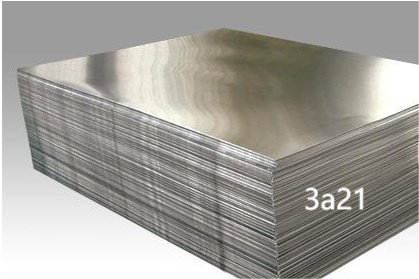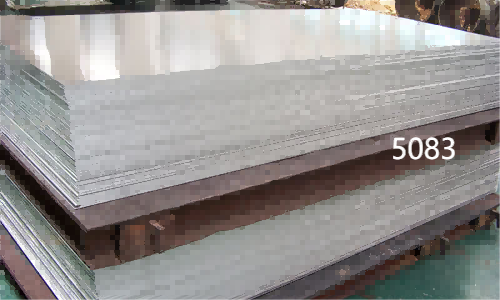In the aluminum sheet market, the 3000 series and 5000 series aluminum sheets are widely used materials, each favored for its unique properties and applications. This article explores the differences between 3000 series and 5000 series aluminum sheets, covering their composition, characteristics, and applications, to help readers make informed decisions when selecting these materials.
Composition and Alloying Elements
3000 Series Aluminum Sheets: The primary alloying element in 3000 series aluminum sheets is manganese (Mn), typically ranging from 1.0% to 1.5%.
Common alloys include 3003, 3004, and 3105.
The addition of manganese enhances the strength and hardness of the aluminum sheets while maintaining good formability and corrosion resistance.
5000 Series Aluminum Sheets: The primary alloying element in 5000 series aluminum sheets is magnesium (Mg), typically ranging from 2.0% to 5.0%.
Common alloys include 5052, 5083, and 5754.
The addition of magnesium significantly increases the strength and tensile strength of the aluminum sheets, as well as enhancing corrosion resistance and weldability.

Physical Properties
Strength and Hardness: Due to the presence of magnesium, 5000 series aluminum sheets generally have higher strength and hardness compared to 3000 series aluminum sheets.
While 3000 series aluminum sheets have slightly lower strength, they offer better ductility and workability.
Corrosion Resistance: 5000 series aluminum sheets exhibit excellent corrosion resistance, particularly in marine and industrial environments, making them suitable for wet and corrosive conditions. 3000 series aluminum sheets also have good corrosion resistance, but not as robust as the 5000 series, thus better suited for general use environments.
Weldability: 5000 series aluminum sheets have good weldability, suitable for various welding methods such as argon arc welding, gas welding, and resistance welding.
3000 series aluminum sheets also weld well, but may not perform as ideally in high-strength welding applications compared to 5000 series aluminum sheets.
Applications
3000 Series Aluminum Sheets: Due to their good formability and moderate strength, 3000 series aluminum sheets are widely used in the manufacturing of home appliances, storage containers for food and chemicals, roofing materials, and decorative materials.
They are commonly used in making air conditioners, refrigerators, automotive fuel tanks, and oil pipes where medium strength is required.
5000 Series Aluminum Sheets: Known for their high strength and excellent corrosion resistance, 5000 series aluminum sheets are widely used in shipbuilding, automotive, aircraft fuel tanks, construction structures, pressure vessels, and flooring materials. They are particularly suitable for marine applications such as hulls and decks, as they can withstand saltwater corrosion.

Price and Market Demand
Price: Due to differences in production processes and raw material costs, 5000 series aluminum sheets are typically priced higher than 3000 series aluminum sheets.
Specific prices also depend on market supply and demand, alloy type, and specifications.
Market Demand: 3000 series aluminum sheets have a large market demand due to their wide applicability and lower cost. 5000 series aluminum sheets also hold a significant market share, particularly in industrial and marine fields, due to their high strength and suitability for demanding environments.
Conclusion
3000 series and 5000 series aluminum sheets differ significantly in composition, physical properties, and application areas. The 3000 series aluminum sheets, with good formability and moderate strength, are ideal for home appliances, food containers, and building materials. In contrast, 5000 series aluminum sheets, with their high strength and excellent corrosion resistance, are extensively used in shipbuilding, automotive, aircraft, and construction structures. When selecting aluminum sheets, one should consider the specific application requirements and environmental conditions, leveraging the unique advantages of each series to make the best choice.


